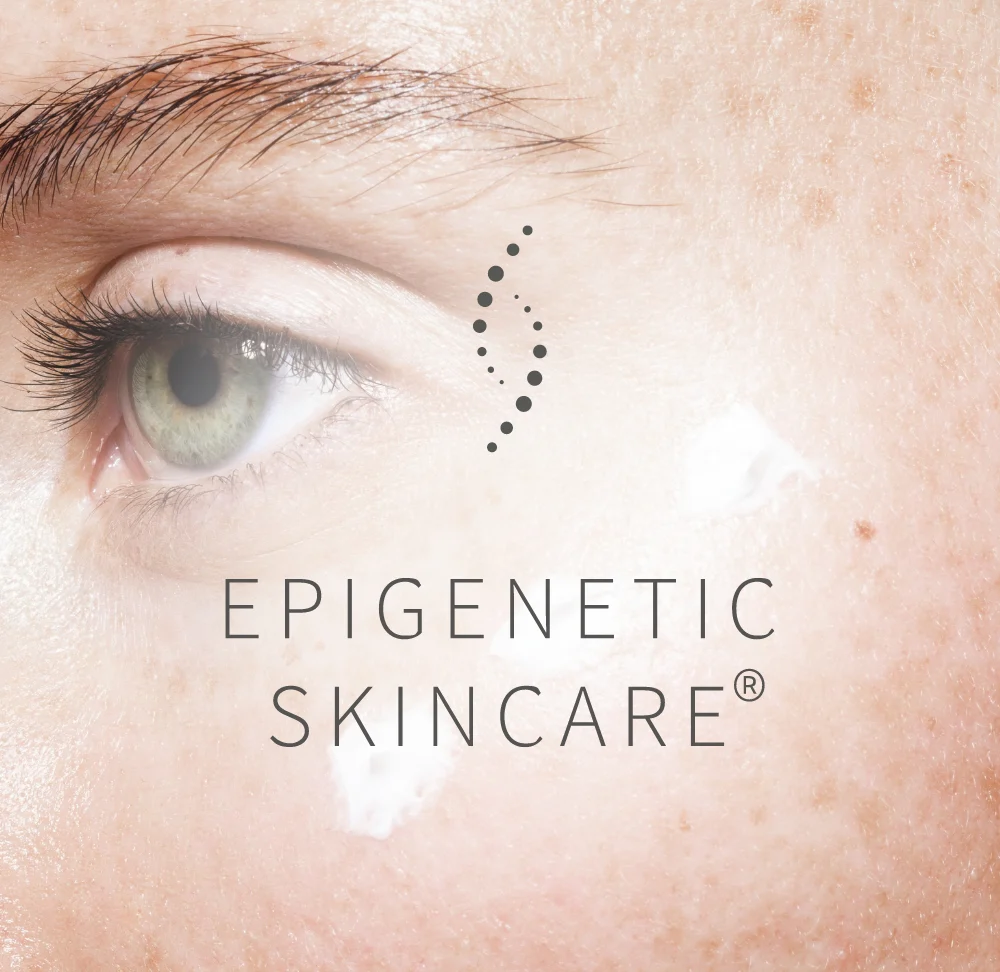Epigenetic Skincare: How Science Is Changing Anti-Aging Forever
As we age, our skin changes. Fine lines, wrinkles, and uneven tone appear. For years, people have turned to skincare products to slow these signs of aging. But now, a new approach is taking the beauty world by storm: epigenetic skincare.
Epigenetic skincare is revolutionizing anti-aging. It promises more than just surface-level solutions. By understanding how our genes express themselves, scientists have created products that can potentially slow down or reverse signs of aging. But how does it work? Let’s break it down.
What Is Epigenetics?
Epigenetics is the study of how our genes are turned on or off by factors outside of our DNA sequence. These changes affect how our cells behave, including skin cells. Unlike genetic mutations, epigenetic changes are not permanent. They can be influenced by lifestyle, diet, environment, and even the products we put on our skin.
In simple terms, epigenetics is like a switchboard for our genes. Some switches are turned on, while others are turned off. This control impacts our skin’s health and appearance.
Why Epigenetics Matters for Skincare
Our skin is the largest organ in our body. Over time, it undergoes changes that are often linked to aging. These changes can be sped up or slowed down based on how our genes are expressed.
In traditional skincare, products like moisturizers and serums work to hydrate and protect the skin. However, they don’t always address the underlying causes of aging at a cellular level. Epigenetic skincare, on the other hand, aims to target the way genes are expressed, potentially reversing some of the damage caused by aging.
Scientists now believe that our genes can be influenced by what we put on our skin. By using ingredients that support healthy gene expression, we may be able to maintain youthful skin for longer.
How Does Epigenetic Skincare Work?
Epigenetic skincare products are designed to interact with the skin’s gene activity. These products contain active ingredients that affect the expression of certain genes. When applied, they can help the skin regenerate, repair damage, and maintain its youthful appearance.
The products target skin’s natural processes. For instance, they may stimulate collagen production or protect against environmental stressors. Both are crucial in maintaining firm and smooth skin.
Some of the ingredients commonly used in epigenetic skincare include:
- Retinoids: Known for their ability to speed up skin cell turnover, retinoids also have epigenetic benefits. They help regulate genes responsible for skin aging.
- Antioxidants: Ingredients like vitamin C and E help protect the skin from free radicals, which can cause oxidative stress and accelerate aging.
- Peptides: Peptides can support the production of collagen and elastin, proteins responsible for the skin’s structure and elasticity.
- Resveratrol: Found in grapes, resveratrol is a powerful antioxidant that can slow the aging process by protecting cells from damage.
- Niacinamide: This form of vitamin B3 helps improve the skin’s barrier function and supports healthy cell turnover.
These ingredients work by interacting with the skin’s epigenetic pathways. In doing so, they influence gene expression related to aging, such as inflammation, skin hydration, and collagen production.
The Role of Lifestyle in Epigenetic Skincare
While epigenetic skincare products are powerful, they are most effective when combined with healthy lifestyle habits. Our skin’s genetic expression can be influenced by our environment, diet, and stress levels.
Diet and Nutrition: Eating a diet rich in antioxidants and anti-inflammatory foods can help reduce oxidative stress and support healthy skin. Vitamins like A, C, and E play crucial roles in skin health and can help maintain the effects of epigenetic skincare.
Sleep: Sleep is essential for skin regeneration. Lack of sleep can affect gene expression, leading to premature aging. Getting enough rest allows the skin to repair itself, which can enhance the effects of epigenetic products.
Sun Protection: Sun damage is one of the leading causes of premature aging. UV rays cause epigenetic changes that damage skin cells. Wearing sunscreen regularly is crucial to protect the skin and preserve its youthfulness.
Stress Management: Chronic stress can lead to inflammation and damage to the skin. Practicing relaxation techniques like yoga or meditation can help reduce stress and promote healthier gene expression.
The Future of Epigenetic Skincare
Epigenetic skincare is still in its early stages, but it has already shown great promise. As more research is conducted, we are likely to see even more advanced products designed to slow aging at a genetic level. Scientists are working to identify specific genes that are involved in skin aging, which could lead to targeted treatments in the future.
One exciting development is the use of epigenetic reprogramming. This is a process where skin cells are “reprogrammed” to a more youthful state by influencing their gene expression. While this technology is still being explored, it could one day offer an even more powerful way to combat aging.
Moreover, with the rise of personalized skincare, it’s possible that we’ll see products tailored specifically to an individual’s genetic makeup. This could allow for even more effective treatments based on each person’s unique genetic profile.
Conclusion
Epigenetic skincare is a groundbreaking approach to anti-aging. By influencing how our genes express themselves, it offers a more advanced way to maintain youthful skin. While it’s not a miracle cure, it holds great promise for the future of skincare. With the right combination of epigenetic products, a healthy lifestyle, and proper skincare habits, it’s possible to slow down the aging process and keep your skin looking youthful for longer.
The science of epigenetics is unlocking new ways to understand and fight aging. As research continues, we can expect even more innovative treatments that could change the way we age, forever.For more skincare and beauty insights, visit https://venzec.icu/ and stay updated with the latest anti-aging trends!

